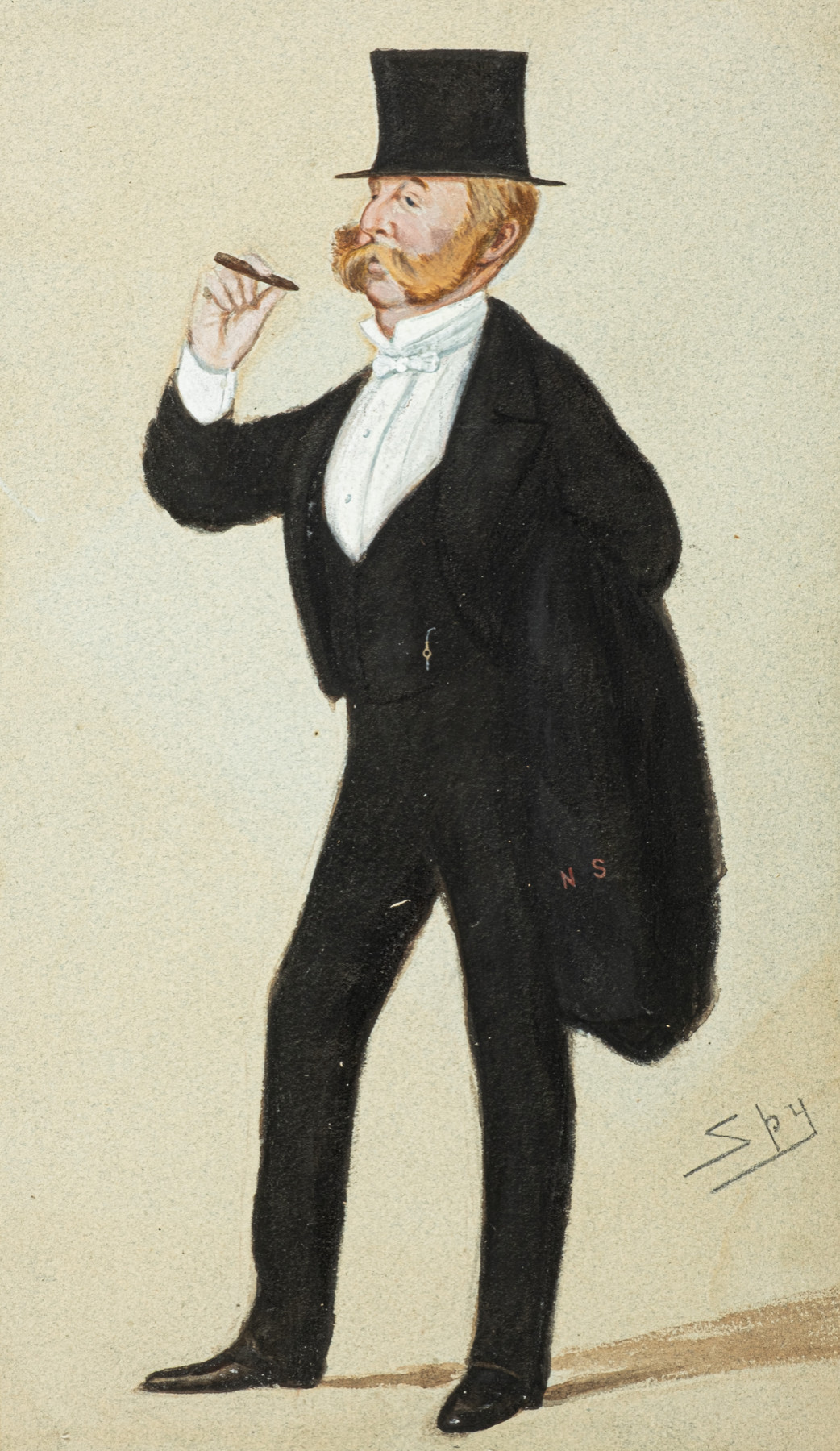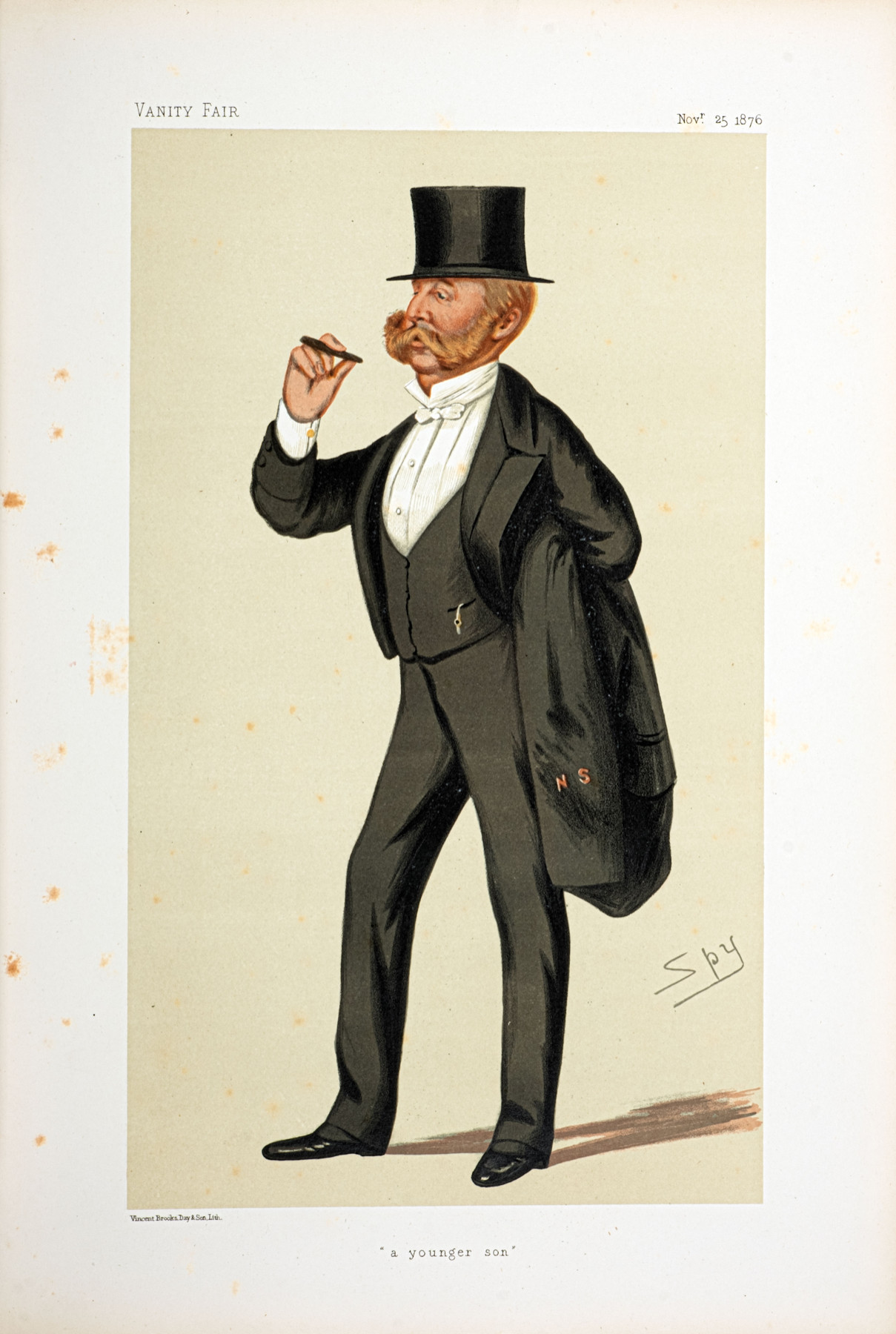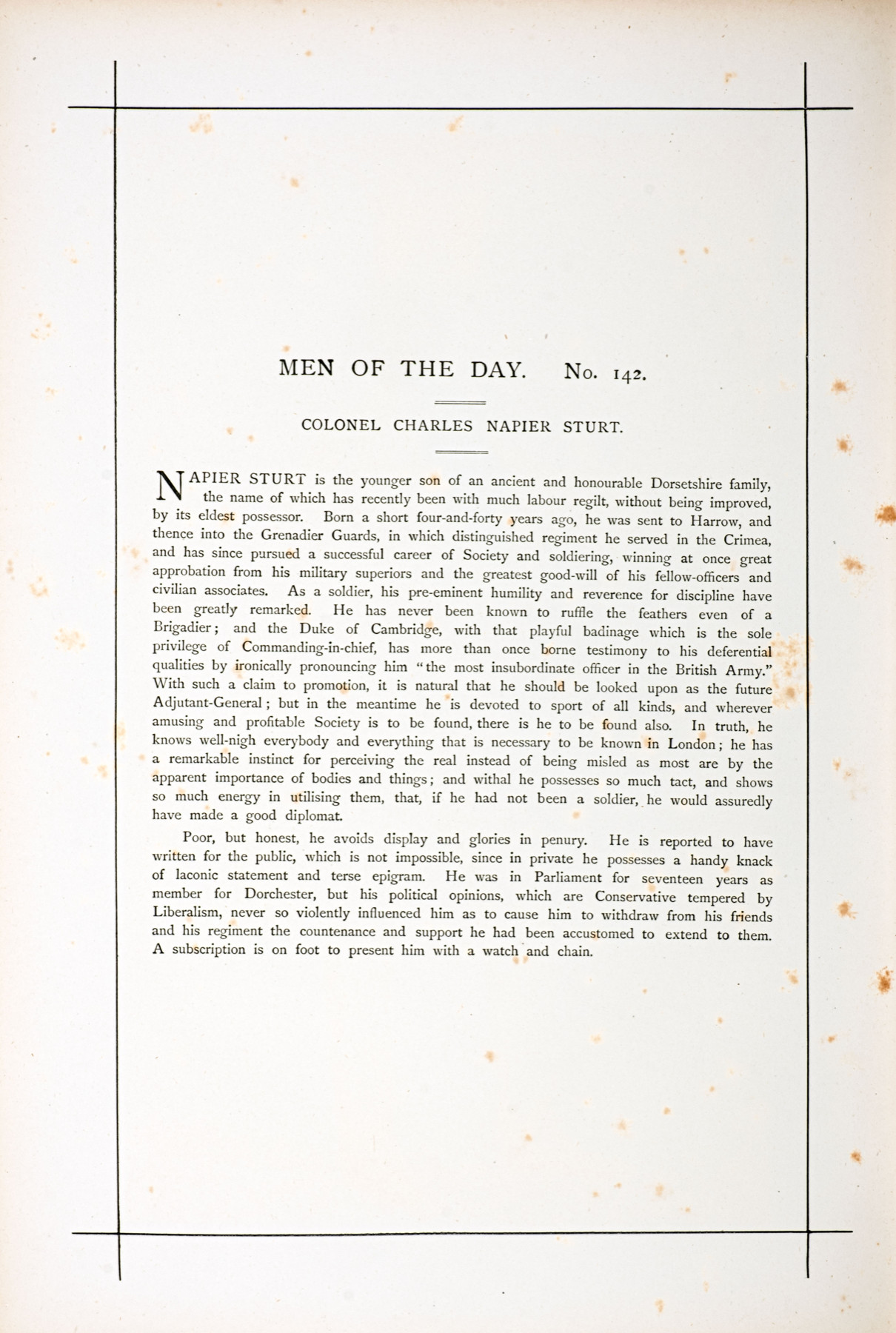


Charles Napier Sturt (1832-1886) was Conservative MP for Dorchester in the period 1856-74. As a Lieutenant-Colonel in the Grenadier Guards, he was severely wounded in 1854 at the Battle of Inkerman, during the Crimean War.
“Napier Sturt is the younger son of an ancient, and honourable Dorsetshire family; the name of which has recently been with much labour regilt, without being improved, by its eldest possessor. Born a short four-and-forty years ago, he was sent to Harrow, and thence into the Grenadier Guards, in which distinguished regiment he served in the Crimea, and has since pursued a successful career of Society and soldiering, winning at once great approbation from his military superiors and the greatest good-will of his fellow-officers and civilian associates. As a soldier, his pre-eminent humility and reverence for discipline have been greatly remarked. He has never been known to ruffle the feathers even of a Brigadier; and the Duke of Cambridge, with that playful badinage which is the sole privilege of Commanding-in-chief, has more than once borne testimony to his deferential qualities by ironically pronouncing him ‘the most insubordinate officer in the British Army.’ With such a claim to promotion, it is natural that he should be looked upon as the future Adjutant-General; but in the meantime he is devoted to sport of all kinds, and wherever amusing and profitable Society is to be found, there is he to be found also. In truth, he knows well-nigh everybody and everything that is necessary to be known in London; he has a remarkable instinct for perceiving the real instead of being misled as most are by the apparent importance of bodies and things; and withal he possesses so much tact, and shows so much energy in utilising them, that, if he had not been a soldier, he would assuredly have made a good diplomat.
Poor, but honest, he avoids display and glories in penury. He is reported to have written for the public, which is not impossible, since in private he possesses a handy knack of laconic statement and terse epigram. He was in Parliament for seventeen years as member for Dorchester, but his political opinions, which are Conservative tempered by Liberalism, never so violently influenced him as to cause him to withdraw from his friends and his regiment the countenance and support he had been accustomed to extend to them. A subscription is on foot to present him with a watch and chain.”
mounted